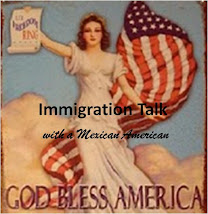 America is a country of Immigrants and we have long celebrated our diversity. Examples of Celebrations include:
America is a country of Immigrants and we have long celebrated our diversity. Examples of Celebrations include:. In 1926, Negro History Week, which evolved into Black History month (February) was originated. Historian Carter Woodson chose the second week of February because it marked the birthdays of two Americans who greatly influenced the lives and social condition of African Americans: former President Abraham Lincoln and abolitionist Frederick Douglass.
. Irish Americans and all Americans celebrate St. Patricks Day on March 17, as an annual feast day which celebrates Saint Patrick (circa 385–461 AD), one of the patron saints of Ireland. We celebrate with parades, festivals, corned beef and cabbage and green beer.
. Americans celebrate Hispanic Heritage Month from Sept. 15 Oct 15. We recognize the contributions of Hispanic Americans to the United States and to celebrate Hispanic heritage and culture. The observation started in 1968 as Hispanic Heritage Week under President Lyndon Johnson and was expanded by President Ronald Reagan in 1988. It was enacted into law on August 17, 1988 on the approval of Public Law 100-402.
"September 15 was chosen as the starting point for the celebration because it is the anniversary of independence of five Latin American countries: Costa Rica, El Salvador, Guatemala, Honduras and Nicaragua. They all declared independence in 1821. In addition, Mexico and Chile celebrate their independence days on September 16 and September 18, respectively."
"September 15 was chosen as the starting point for the celebration because it is the anniversary of independence of five Latin American countries: Costa Rica, El Salvador, Guatemala, Honduras and Nicaragua. They all declared independence in 1821. In addition, Mexico and Chile celebrate their independence days on September 16 and September 18, respectively."
Let all Americans take the time to celebrate the rich cultural diversity in our Nation!
E pluribus unum: out of many one. One state made of many states. One culture made of many cultures. One tribe made of many tribes. One clan made of many clans. One family made of many families. Made of individuals as unique and precious as life itself.








6 comments:
Oh, goody those of Irish ancestry get one day to celebrate their heritage and Hispanics get an entire month?
This country shouldn't be endorsing or dedicating days, weeks, months for certain heritages. We should be just celebrating being American every day. If certain ethnic groups want to do their own celebrations than so be it but I am opposed to our government getting involved in it and shoving it down our throats.
Pat,
We celebrate being American every day! There certainly are other ethnic, cultural celebrations. I only listed what I viewed as the top 3 (most known). I used to live in Chicago and they had a weeks long Festival called "Taste of Chicago." I dont know if they still have it. But we celebrated all different ethnicities through Unity, Food and Fun!
Yes, and we should celebrate being Americans everyday, period!
As you obviously overlooked, I said that I am opposed to our government shoving ethnic celebrations down our throats. If these ethnic groups want to celebrate their heritages without an official endorsement of our government, that is fine with me. But even at that, one festival for a short period of time should suffice and the rest of the year dedicated to being just a plain American.
"I used to live in Chicago and they had a weeks long Festival called "Taste of Chicago."
They have a similar event here in Denver every year but the emphasis is on "taste" not ethnicity. A similar event is also held in Miwaukee but that is more a diversity kind of thing.
We would be better off if this type of event was the main celebration for all. I don't recall a British, German or Danish Heritage Month. How fair is that? I think we should stick with the "Taste of ..." type of event and eliminate the month long celebrations for any ethnic group.
Then we could focus on celebrate being Americans every day by making sure we still have cause to celebrate in the future Mexico Norte. But we will never have cause to celebrate the shortsightedness of those who do nothing to thwart that outcome.
German = Oktoberfest
(and I loved them! Especially the polkas and beer!)
Biting Words
by Laurel Anne Hill
(In honor of Hispanic Heritage Month, submitted from my file)
I pick up a glossy newsletter from the stack of daily mail. The words “of Mexican descent” in the middle of an article grab my attention, like brake lights during a commute. My father’s grandparents, Hipolita and Emilio Medina, were born in Mexico. Perhaps this piece will have special meaning for me.
The article’s author, of British and Scandinavian lineage, addresses current immigration issues. He questions plans to construct a wall along the U.S.-Mexican border. True, an estimated 12 million illegal immigrants already live in our country. Our economy’s ability to accommodate millions more has limits. Yet the article’s author has no desire to hide behind a monstrous mega-barrier or force others to dwell in front of one.
I applaud his viewpoint. The piece is sensitive and well-written. But something in the content feels wrong. What is it?
A paragraph in the article describes “A Day Without a Mexican,” a movie in which everyone of Mexican descent in Los Angeles disappears for 24 hours. No Mexican day laborers, nannies, landscapers, farm or restaurant workers report for duty. The heart of California’s economy goes into cardiac arrest.
I finger the smooth pages of the newsletter and reread the paragraph. I’ve not seen “A Day Without a Mexican.” The film appears to emphasize the essential contributions of low-paid Mexican workers in the United States. Yet the article’s author mentions nothing about professional jobs that should have been affected. Where are the comments about elementary school teachers, college professors, physicians, lawyers, engineers, musicians or highly skilled craftsmen? Should we equate the entry-level work status of many Mexican aliens, who must often accept whatever jobs they can find, with the status of all of their descendants?
I stand and face my image in the dining room mirror. My short blond hair and freckled nose reveal my own British and Scandinavian ancestry. I have something in common with the article’s author. Yet I am a Medina, too, the great-granddaughter of a seamstress who wrote poetry, and the great-great granddaughter of a woman whose passion supported revolution in Mexico. How do I--and other professionals of Mexican descent I have met--mesh with this article’s portrayal?
Furthermore, the author mentions the assimilation of his own European forefathers, without acknowledging that any Mexican immigrants wove their way into America’s fabric. As a result, the shadow of stereotype mars his piece about a complex social issue.
As a writer, I understand the difficulties of proofreading, juggling content and editorial deadlines. But we need to beware of stereotypes--in writing and in life. Attention-grabbing words are often a plus. Yet what we forget to say can surface and bite us.
Post a Comment